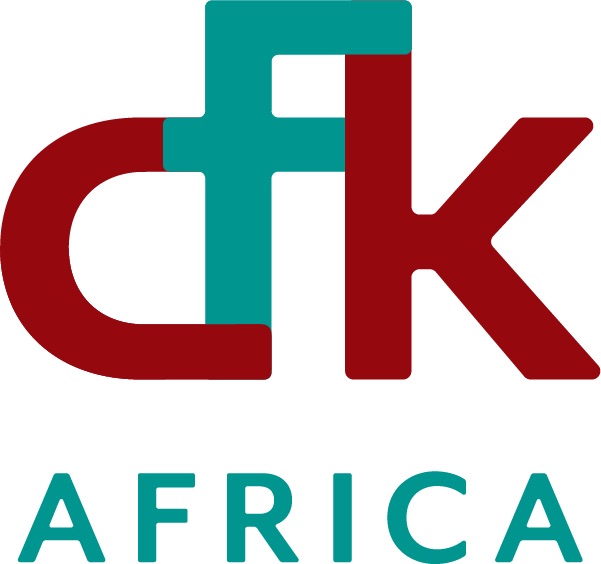Written by Mary Feser, CFK Africa 2024 Peacock Fellow and MPH Student in Applied Epidemiology at the University of North Carolina, Chapel Hill.
“Real change, enduring change, happens one step at a time.” – Ruth Bader Ginsburg
Working with CFK Africa as a Monitoring, Evaluation, and Learning (MEAL) fellow on the Girls’ Empowerment Program has reinforced my belief that giving girls and women the tools they need to succeed can lead to transformative change, even in the most challenging circumstances.

While visiting program sessions in Nairobi in August 2024, I saw how the Girls’ Empowerment Program offers girls a unique opportunity—to feel supported, build community, and benefit from the guidance of trusted adult women–that has the potential to impact their lives long after they exit the program. I have also become much more aware of how common evaluation methods can miss long-term, generational changes and consequently underestimate the true benefits of female empowerment. For me, this experience has underscored the importance of developing evaluation frameworks that capture the full, enduring impact of empowering girls and women.
While CFK Africa’s Girls’ Empowerment Program is expansive and multifaceted, one of its primary goals is to provide safe spaces for adolescent girls, including adolescent mothers. In these spaces, adult women mentors lead sessions on sexual and reproductive health, self-confidence and self-efficacy, and girls’ and women’s rights. Girls can also ask questions and discuss challenges. All of the participating girls have access to menstrual supplies, while adolescent mothers participating in the program receive financial support to return to school and some supplies for their children.
Perhaps the most valuable aspect of CFK Africa’s Girls’ Empowerment Program is community.
Attending a session for younger girls, I was most struck by their joy: they were attentive, excited to contribute to the conversation, and quick to laugh. They seemed to delight in being together. With the older girls, all of whom were adolescent mothers, the mood was more subdued. As they spoke about their experiences, it became clear that for most of them, becoming a mother had proven isolating: many of their children’s fathers were absent, and their relationship with their family was often fraught. They had few people to rely on and confide in. For all these girls, the sessions provide one—and sometimes the only—space where they can feel heard.

How do we measure the ways in which these girls’ experiences in the program might influence their lives as they become women? Program monitoring and evaluation (M&E) has become an integral part of non-profit and non-governmental organization work over the past few decades, and it has great value to both organizations and funders. It can help identify areas for improvement, direct funding to effective programs, and increase accountability to beneficiaries. Evaluation methods rely on quantifiable indicators and rigorous measurement. In planning evaluation metrics for the Girls’ Empowerment Program with the CFK Africa team, we have taken care to emphasize key health-related outcomes that can be measured over the two years of the program: reductions in new adolescent pregnancies and early marriages, increases in school enrollment, and improvements in sexual and reproductive health knowledge.
These outcomes have potentially lifelong implications, but they are not the only benefits.
Experiences with community support and mentorship in adolescence can have subtle but profound impacts that only become visible over time. If an adolescent girl has one space in which she feels safe and supported, will she grow into a woman who is better able to advocate for herself and her family? If she feels the benefits of community, will she be motivated to continue building strong female communities? If she finishes one more year of schooling because of the program, will she seek out more educational opportunities for her own daughters? Will she, in short, be more equipped to raise up the next generation of girls and women?
Standard program evaluation methods are often ill-suited to answer questions like these. Even research-focused organizations have only recently started evaluating programs long-term (a decade beyond the initial start date). Studies and evaluations that examine changes in outcomes over generations are strikingly few. For smaller organizations who cannot access as much funding, measuring outcomes a decade—much less a generation—into the future is often unrealistic. Furthermore, tracking participants over extended periods is especially challenging in complex environments like informal settlements, where the population is constantly changing. When evaluating girls’ and women’s empowerment programs, we need to keep in mind that these programs are likely to be most effective long after we have lost track of the participants.

If we acknowledge that subtle, generational changes are often the most powerful yet hardest to quantify, how do we move forward as public health professionals, evaluators, and researchers? One approach is to develop more robust tools for measurement, invest in long-term studies, and develop integrated health record systems to track outcomes in larger populations. While this is a valuable strategy, it is also costly and may always face logistical and ethical hurdles. When we encounter these limitations, maybe we need to take a step back and ask ourselves: do girls—everywhere, regardless of their circumstances— deserve spaces in which they can truly be themselves, connect with other girls, and find female mentors and role models? The answer is undeniably yes.
At CFK Africa, the Girls’ Empowerment Program is rooted in the idea that investing in girls has the power to drive enduring change. We need a new evaluation paradigm to ensure that girls’ empowerment programs remain a priority. One that recognizes that our ability to rigorously measure one of the most powerful forces for progress—change across generations—may always be limited, and balances data-informed insights with our convictions about the right path forward.
Donate to support the next generation of women and girls with a tax-deductible gift to CFK Africa.
